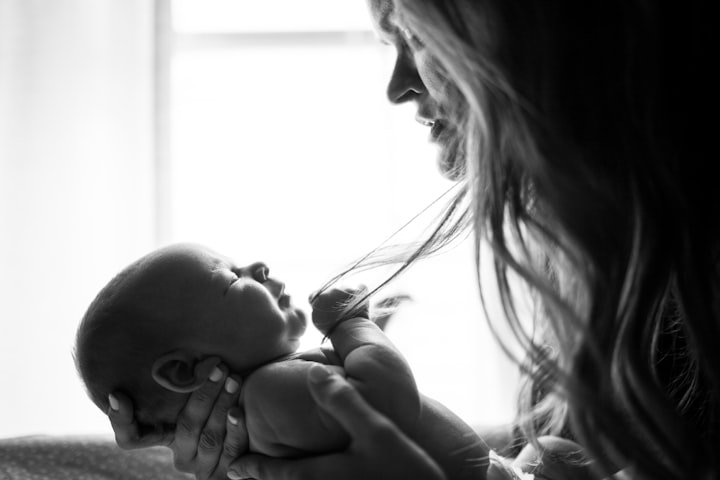
YOUR BODY AFTER PREGNANCY: PHYSICAL CHANGES TO EXPECT
The term “postpartum” refers to the time immediately following the birth of a baby. Both pregnancy and this period of time after giving birth are marked by significant increases in hormone production, which can affect both a mother’s mental state and her physical body.
Many of the physical effects can be negative, as the act of growing, delivering, and then caring for another human can take a serious toll on a woman’s mental and physical state.
While mental struggles like postpartum depression are important to address, here we will be specifically focusing on the physical effects that your body goes through in the period following a pregnancy.
HOW LONG DOES POSTPARTUM LAST?
The postpartum period is often divided into three distinct though continuous phases.
The first or “acute” phase is the initial 6-12 hours after birth. This is followed by the second or “subacute” phase, which typically lasts for around 2-6 weeks. After that, the third or “delayed” phase can continue for up to 6 months.
Note that these numbers are approximations, and can be heavily influenced by things like how well you take care of yourself after giving birth, or the number of children you already have.
POSTPARTUM SYMPTOMS
Here are a few of the most common postpartum symptoms that women experience after giving birth.
Swollen Feet
The weight that you gain during pregnancy can put your feet under a significant amount of pressure for an extended period of time. This can lead to swelling, which can be severely uncomfortable, especially towards the end of a pregnancy.
Once you’ve had the baby, though, the swelling can continue. Your feet, ankles, and even your hands can remain swollen as your body slowly processes the excess amount of fluids from pregnancy.
Stretch Marks
Stretch marks are a common symptom that can appear during the postpartum period. They are a natural consequence of the intense amount of strain put on your skin during the pregnancy. Though stretch marks are often permanent, they typically lighten over time.
Hair Loss
Hair loss is another common change that the body can experience during the postpartum period. The experience of childbirth can push your body’s hair into the telogen or “resting” phase as opposed to a growing phase. This can lead to as much as triple the amount of hair loss on average.
If you find that you’re losing more than your fair share of hair after giving birth, don’t be worried; it’s common. Fortunately, there are both natural hair thickening methods and hair growth products that can help slow or mitigate hair loss during the postpartum phases.
Joint Pain
You may also find that you’re dealing with an unusual amount of joint pain during the postpartum period. This can be due to either maintaining a prolonged position during your delivery, or chemical changes that your body goes through afterward as your body returns to normal.
POSTPARTUM RECOVERY TIPS
All of the above symptoms are normal and shouldn’t be causes for alarm. However, there are several easy steps that can be taken in order to help minimize their effect, or even help prevent them from flaring up in the first place.
Drink Water
Water is always a key element to a healthy lifestyle. Drinking plenty of water during the postpartum phase, in particular, can be an excellent way to flush out excess fluids from your system and make sure that you remain well-hydrated as your body heals.
Eat Healthily
While it’s okay to indulge in that cup of coffee each morning now that you’re done with your pregnancy, it’s important that you still maintain an overall effort to eat well. Stock your home with healthy snacks, such as proteins and veggies before the birth, and create health-focused meal plans for after baby.
Take Vitamins
Along with staying hydrated and eating healthy foods, it’s advisable to continue taking your vitamins. Talk to your doctor about what vitamins you should be taking after your birth in order to help provide the nutrition that you and your baby require.
Get Some Compression Socks
If you’re suffering from swollen feet and ankles, consider getting a pair of maternity compression socks or stockings in order to help reduce the swelling.
Ask for Help
Anxiety, broken up sleep, and general exhaustion can weigh heavily on a new mother. One of the essential ways to avoid the stress — and the postpartum symptoms that it can trigger — is accepting help with recovery.
Your partner, or other sources of help, may not do everything in exactly the same way as you would choose to do. However, it’s important to allow those that you trust to help you. Take advantage of the break to take some time for yourself in order to rest, meditate, or take a nap.
Take a Bath
A bath is a great way to help yourself unwind and relax any tight muscles that may be lingering from the delivery. It can also be an excellent way to clean up after breast-feeding. With that said, it’s important to remember that if you had a C-section you cannot take a bath until the scar is fully healed.





Comments
There are no comments for this story
Be the first to respond and start the conversation.